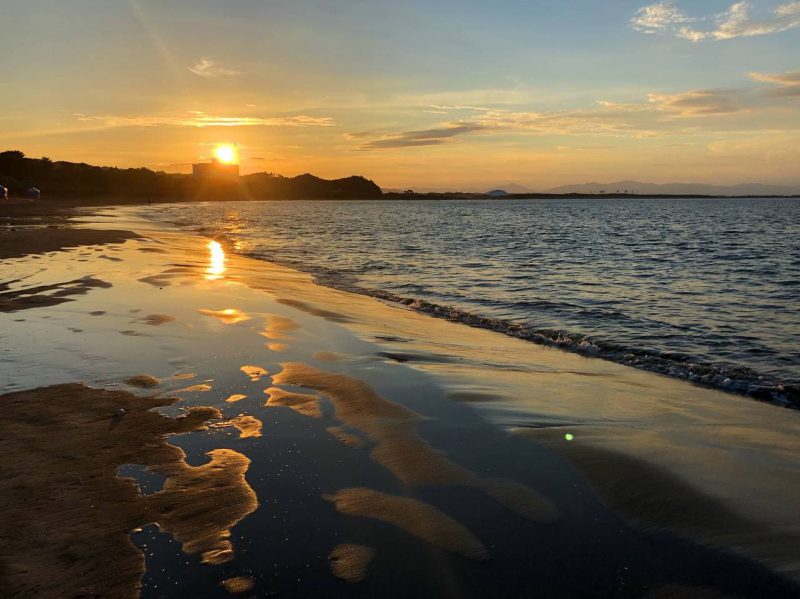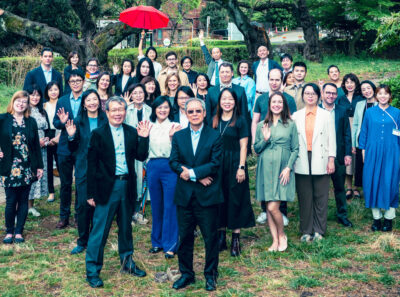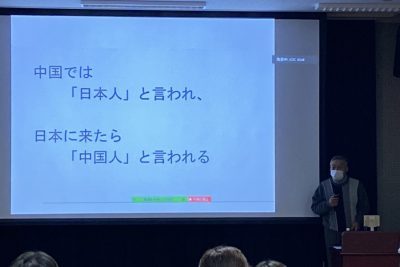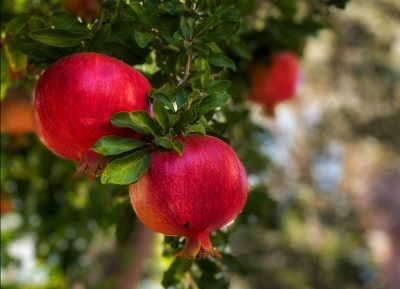On Life and Living: Looking Back on 2021

Looking back on 2021, I recall that at the beginning of the year, when celebrity Asako Ito was asked about her goal the coming year, she answered “to live”—her reply resonated deeply with viewers and became a trending topic on Twitter.[1] A few days ago, “kin” (金; ‘money’, ‘gold’) was announced as the kanji of the year at Kiyomizu-dera, but this year, the three characters of “to live” (生きる; ‘ikiru’) caught my eye much more than usual. Among the books published this year (as well as those coming soon), there are many in various genres from academic and business to recipe books that include among their keywords some form of the word “live”: “living in the present,” “living how you want,” “living happily,” “living richly,” “living as you are,” “living freely,” “living together,” “living alone.”
The question of “living,” or more specifically, “how to live,” is a common issue that humans have long faced, but the fact that it has attracted this much attention in the last year is perhaps a reflection of the fact that living itself has become difficult recently. Although I, the writer of this blog, and you, the reader, share the fact that we lived in 2021, it is also important to acknowledge the reality that many were not so lucky. According to the Ministry of Health, Labor, and Welfare’s report on vital statistics, in Japan alone the number of deaths this year through September was about 1,075,000, an increase of about 60,000 from the same period last year, indicating that “excess deaths” were recorded compared to a typical year.[2]
Last year, Tokyo College added as one of its research themes “Life and its Value for Future Society,” and we discuss this topic daily through symposiums and research seminars.[3] Through Tokyo College’s activities during 2021, I myself have also had the opportunity to think about the usefulness of humanistic knowledge in the context of “life” and “living.” From the perspective of an individual who lived during 2021, I would like to write about how the humanities have been useful in affirming this idea of “living,” and the kind of future we can imagine based around the question of how we want to live.
Embracing “Living”
When the problems we face become too big, many have thoughts of death, falling into the trap of thinking that the only solution is to end our own lives. According to a survey by Associate Professor NAKATA Taisuke (Graduate School of Economics, University of Tokyo), there were 4,400 excess suicides from March 2020 through August 2021—of these, women in their twenties occupied the highest proportion at 700, followed by men in the thirties and twenties.[4] Furthermore, there is also concern that suicides among children (elementary, junior high, and high school students)[5] and university students[6] have been on the rise during the pandemic. Financial distress is also a known trigger for depression and other mental illnesses. While it is my hope that the appropriate support services will be made available and that the societal situation will improve quickly, at the same time, I feel that much more fundamental measures are necessary. When I use the phrase “fundamental measures,” what I mean is that rather than asking how we can stop people from wanting to die, we should instead consider how to guide people towards a more positive understanding of what it means to live.
In the introduction to his book Anata ga shinitai no wa, shinu hodo ganbatte ikiteiru kara [‘You want to die because you’re trying so hard to live’], psychiatrist TAIRA Kōgen writes, “People are not valuable just because they do something—their existence itself is valuable—but many are fixated on the ‘outcomes of this world.’”[7] First of all, the phrase “this world” (‘kono yo’) refers to the place we are while we are alive, and it expresses the outlook on life and death wherein we go to “the other world” (‘ano yo’) (i.e., not this world) when we eventually die. Next, the word “outcome” refers to events that can be decided by X or Y, such as passing or failing an exam, winning or losing a game, or things that can be classified as good or bad. As long as we continue to think about the events of that unfold before us in “this world” as either good or bad, it is no surprise that on days when nothing good happens, we would deny even our own existence.
So, I believe that it is highly effective to utilize humanistic knowledge in order to develop an outlook that is not held captive by the so-called “outcomes of this world” and instead takes a positive approach to living. For example, the book Umarete konai hō ga yokatta no ka [‘Would it have been better if I had never been born?’] by Professor MORIOKA Masahiro (School of Human Sciences, Waseda University), a proponent of research on the philosophy of life, is incredibly helpful in understanding various views on life and death. The book covers a wide range of topics and presents them in a new light, ranging from the relationship between antinatalists and their desire to have never been born, to modern and contemporary European literature and philosophy, ancient Greek literature, the religious world of the Upanishads in ancient India, and the original Buddhism of the Buddha. In Chapter 6, “Nietzsche, can you love the fate you were born into?”, there is a section where the author explains Nietzsche’s idea of eternal recurrence.
My life is not isolated. It is connected to everything, both spatially and temporally. First, looking at it from a spatial perspective, if I can say “yes” to the current moment, it means I have said “yes” not only to my own existence, but to all other existences as well. Next, looking at it temporally, if I am overcome with happiness in the current moment, I have said “yes” to all past events that flowed into and arranged for this moment, and to all the future events that will follow this moment. In this way, by saying “yes” to the present moment, I am affirming and redeeming all things in the past, present, and future as a whole.[8]
In other words, in order to affirm the idea of living in the present moment, we must also accept everything else with a “yes,” from painful experiences we do not want to repeat to the brutal history of humanity. Moreover, we must affirm not simply ourselves in isolation, but everything that connects life to everything else. It is not my intention to argue whether we should affirm the idea of living, but at the very least, I believe that the concept of eternal recurrence provides us with a chance to become aware of the broader universe as a whole rather than only its immediate outcomes. Perhaps precisely because were born as human beings, recognizing the human desire to avoid painful moments, while isolating the happy ones to experience them over and over again, is valuable in and of itself. Looking back on the history of humanity and noticing the diversity of views on life and death that exist in various regions and religions, we can relativize our image as it exists in this world and confirm that immediate outcomes are not the only thing that determines the value of our existence.
Imagining how we want to live in the future
At Tokyo College, we teach an interdisciplinary undergraduate seminar titled “Earth and Human Society in 2050– Interdisciplinary Perspectives” that is run through University of Tokyo’s liberal arts “zengaku zemi” program. This class, which is designed and taught collaboratively by a group of Tokyo College researchers, is an opportunity to apply Tokyo College’s missions in a classroom setting. The seminar is composed of five blocks in accordance with Tokyo College’s research themes: “Digital Revolution and Future of Humanity,” “Tackling the Planetary Boundaries through Interdisciplinary Approaches,” “Japan Viewed from Inside and Outside,” “Humanities in 2050,” and “Life and its Value for Human Society.”
Last week, in a seminar session called “The Future of Humanities,” I had the privilege of discussing with undergraduates how we imagine the humanities and universities in thirty years from now. As preparation for thinking about the future, we looked back at how an ideal 2020 Japan was envisioned in 1970: “The workday will have been reduced to four hours a day. Physical labor will have disappeared altogether. People will conduct business electronically and be surrounded by mechanisms and technological innovations.” However, in actual 2020, we are witnesses to a different reality—people today continue to work long, stressful hours. In fact, the book Bullshit Jobs: A Theory[9] by the late Professor David Graeber, which asks why we have yet to enact a shorter workday, was a best-seller.
We know that the perception of harsh labor conditions also has an effect on how undergraduate students view the university as a place to be. When asked about how they see the university, many students said that they view it as “a limited amount of time where they can study freely at their own discretion without social responsibilities” and “a place where they can acquire knowledge that may not necessarily be directly useful in the future.” At the same time, there were students who voiced concerns that entering the workforce means a loss of both time and freedom, saying they would “only have time to do what is required of them” and that their “first priority” would be to be “directly useful at work.” One of the most memorable responses was a student who said, “Just thinking that my freedom ends when my time at college ends makes me feel uneasy about the future. I want to live with a feeling of freedom in my heart forever.” Universities in modern-day Japan occupy the time between college entrance exams and job hunting, and as a result, they have been unable to escape their position as a kind of moratorium period. However, this situation teaches us that in society, the university is a place where we can find the infinite in the finite, a kind of last bastion where we can freely explore what it means to live.
Since 1960, the position of the humanities in Japanese universities has been weakening due to pressure from the industrial sector.[10] In order to recover the various things that have been lost during this weakening, as well as create a society in which everyone can choose to live, I believe it is necessary to redefine the place of the university, both in society and within the minds of individuals. This year, Tokyo held the Olympics for the first time since 1964. Did they not undermine “life” in the pursuit of “gold”? Did they weigh them equally? For those of us who accomplished their goal of “living” in 2021, I feel that we have a responsibility for once again envisioning the future, starting from the viewpoint of how we want to live.
[1] https://www.huffingtonpost.jp/entry/story_jp_5ff7ddedc5b65671988446ab
[2] https://www.nikkei.com/article/DGKKZO78321820Z01C21A2CM0000/
[3] https://www.tc.u-tokyo.ac.jp/weblog/2194/
[4] https://www.nikkei.com/article/DGXZQOUA0123G0R01C21A1000000/
[5] https://www.mext.go.jp/content/20210507-000014796-mxt_jidou02_006.pdf
[6] https://diamond.jp/articles/-/281842?page=2
[7] Taira, Kōgen. (2021). Anata ga shinitai no wa shinu hodo ganbatte ikiteiru kara [‘You want to die because you’re trying so hard to live’]. Tokyo: Sunmark Publishing.
[8] Morioka, Masahiro. (2020). Umarete konai hō ga yokatta no ka [‘Would it have been better to have never been born?’], 223-224. Tokyo: Chikuma Shobō.
[9] Graeber, David. (2018). Bullshit Jobs: A Theory. New York: Simon & Schuster.
[10] Yoshimi, Shun’ya. (2016). “Bunkei gakubu haishi” no shōgeki [‘The impact of the “abolition of humanities departments”’]. Tokyo: Shūeisha.








